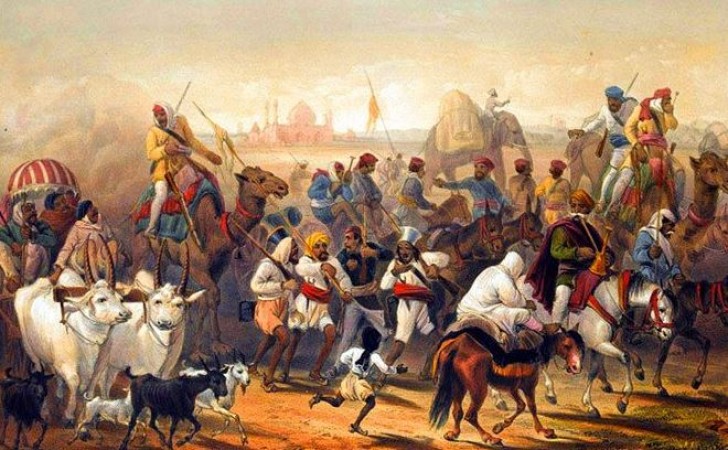
As India approaches its 76th Independence Day in 2023, it's essential to revisit the historical milestones that led to the nation's hard-fought freedom. One of the most pivotal chapters in India's struggle against colonial rule is the 1857 Revolt, often referred to as the First War of Independence. This event, marked by bravery, sacrifice, and the unyielding spirit of the Indian people, laid the foundation for the eventual triumph of freedom.
A Prelude to Change: Seeds of Discontent
The early 19th century was a period of growing discontentment among the Indian populace, triggered by the oppressive policies of the British East India Company. Economic exploitation, cultural suppression, and discriminatory practices fanned the flames of unrest. The introduction of the new Enfield rifle cartridge, rumored to be greased with animal fat, further exacerbated religious sentiments, ultimately leading to widespread unrest.
Eruption of the Revolt: A Cry for Freedom
The spark of rebellion was ignited in Meerut on May 10, 1857, when Indian soldiers, or sepoys, refused to use the controversial cartridges. This small act of defiance soon escalated into a full-fledged uprising, with cities like Delhi, Lucknow, Kanpur, and Jhansi becoming epicenters of resistance. The rallying cry was simple yet powerful: the quest for India's own governance and the restoration of its pride.
Leaders of the Uprising: Icons of Courage
The 1857 Revolt was characterized by the emergence of courageous leaders who stood against the might of the British Empire. Notable figures like Rani Lakshmibai of Jhansi, Bahadur Shah II, Tatya Tope, and Mangal Pandey became symbols of defiance and resilience. Their unwavering determination to free India from the shackles of colonialism inspired countless others to join the cause.
The Battle for Freedom: A Glimpse of Unity
The Revolt of 1857 saw an extraordinary display of unity among Indians of various backgrounds – Hindus, Muslims, Sikhs, and others – standing shoulder to shoulder against a common oppressor. This unity showcased the inherent strength of India's diverse society and hinted at the future collaboration that would play a crucial role in the nation's struggle for independence.
A Shifting Narrative: India's First War of Independence
For decades, the events of 1857 were often perceived as a mutiny or a mere military uprising. However, historians like Veer Savarkar highlighted the broader perspective: the 1857 Revolt was not just a military rebellion, but India's first collective and coordinated endeavor for self-governance. This shift in narrative acknowledged the revolutionary spirit that underpinned the movement.
Legacy and Significance: 1857 and India's Independence
The 1857 Revolt, despite its initial suppression, left an indelible mark on India's collective consciousness. The sacrifice and courage displayed by those who participated became a source of inspiration for future generations. The fight for freedom gained momentum over the years, culminating in India's ultimate liberation in 1947.
As we celebrate India's Independence Day in 2023, we pay homage to the heroes of the 1857 Revolt who sowed the seeds of resistance and set the stage for the long journey to independence. Their struggles remind us that the pursuit of freedom is never in vain, and their sacrifices continue to inspire us to uphold the values of democracy, equality, and justice.
In commemorating the 1857 Revolt, we honor the countless lives that were lost and the unwavering spirit that paved the way for the nation's destiny. As India progresses on its path of growth and development, it's crucial to remember the sacrifices of those who came before us, ensuring that their legacy remains a guiding light for generations to come.
Independence Day 2023: US Legislators Set to Attend PM Modi's Address at Red Fort
A Glimpse into India's First Post-Independence Budget: Honoring the Fiscal Foundation
From Independence to Sovereign Strength: India's Defense Sector Evolution